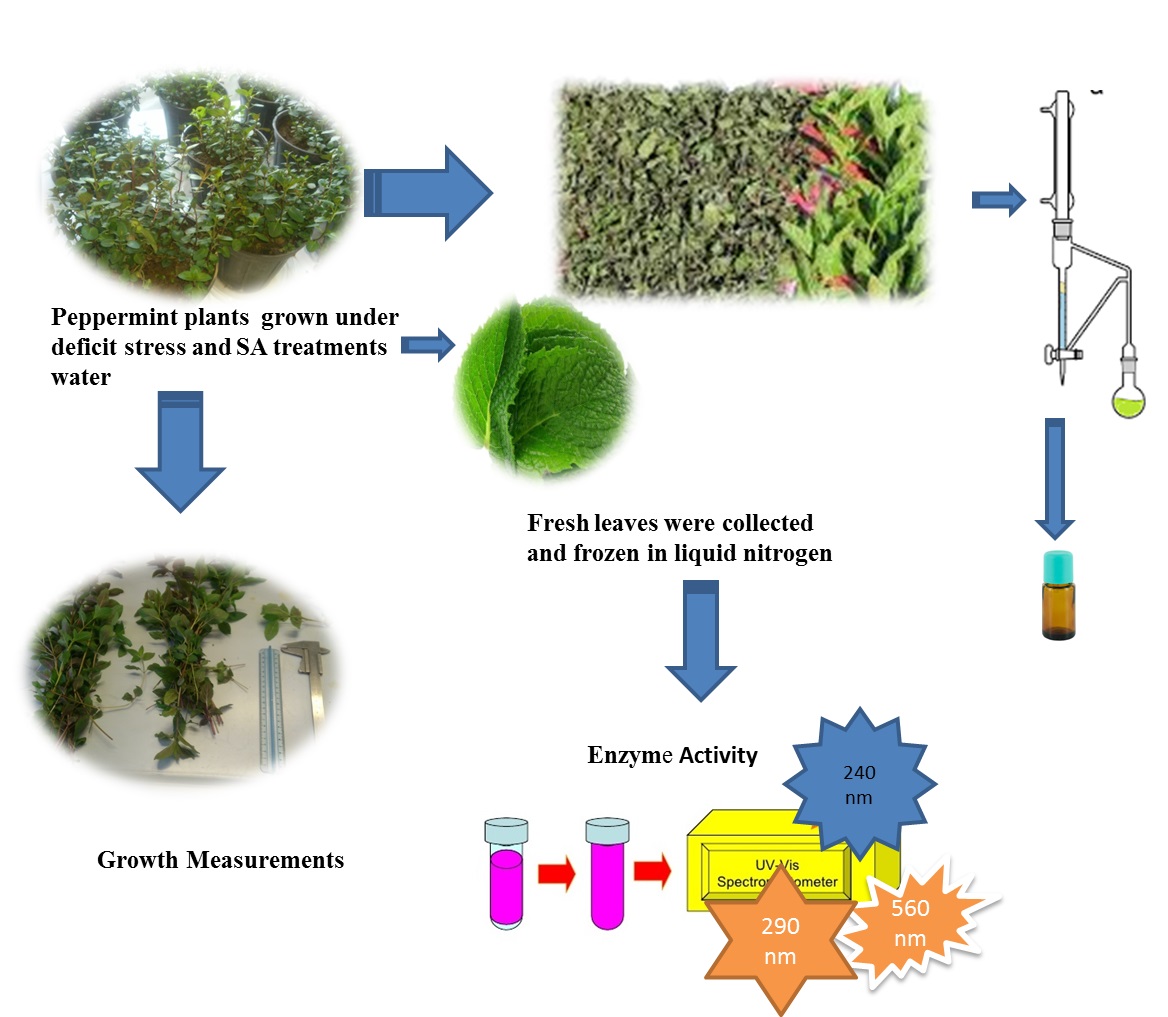Salicylic acid effects on some physiochemical properties and secondary metabolite accumulation in Mentha piperita L. under water deficit stress

Published 2020-04-01
Keywords
- Mentha piperita L.,
- Persian Gulf,
- secondary metabolites,
- water deficit stress
How to Cite
Abstract
Salicylic acid (SA) play important roles in different physiological processes of plants such as plant growth, stress response, plant adaptation and secondary metabolite accumulation. This study was conducted to evaluate the effect of exogenous SA applications on the growthmeasurements such as fresh and dry weight of aerial part and lead dry weight, biochemical properties (membrane permeability, lipid peroxidation, Proline content and ROS scavenger enzymes) and secondary metabolite accumulation(total phenolic and the flavonoid and essential oil content) in peppermint (Mentha piperita L.) plants grown at different levels of water deficit stress (Field capacity: FC). For this aim, three different water deficit stress (no stress (100% FC), mild stress (75% FC) and moderate stress (50% FC)) and four different SA concentrations (0, 1, 2 and 2.5 mM) were applied to peppermint plants. Results showed that all of the measured parameters were affected by the water deficit stress and SA application. By elevating the level of water deficit stress, fresh and dry weights of aerial parts and dry leaf weight decreased. Increasing in the water deficit stress level from mild to moderate stress resulted to reduce the essential oil content while proline, lipid peroxidation, total phenolic contents, flavonoid content, and antioxidant enzyme activities increased depending on water deficit stress. Exogenous application of SA obstructed the negative effects of water deficit stress by decreasing the lipid peroxidation and membrane permeability and improving the antioxidant enzymes activities. Essential oil content increased significantly in plant treated with SA grown under water deficit stress conditions. Application of 2 or 2.5 mM of SA enhanced the plant growth and development without any toxic effects and increased significantly the total phenolic content, dry leaf weight, and the essential oil content in stressed and even in control (100% FC) peppermint plants.





